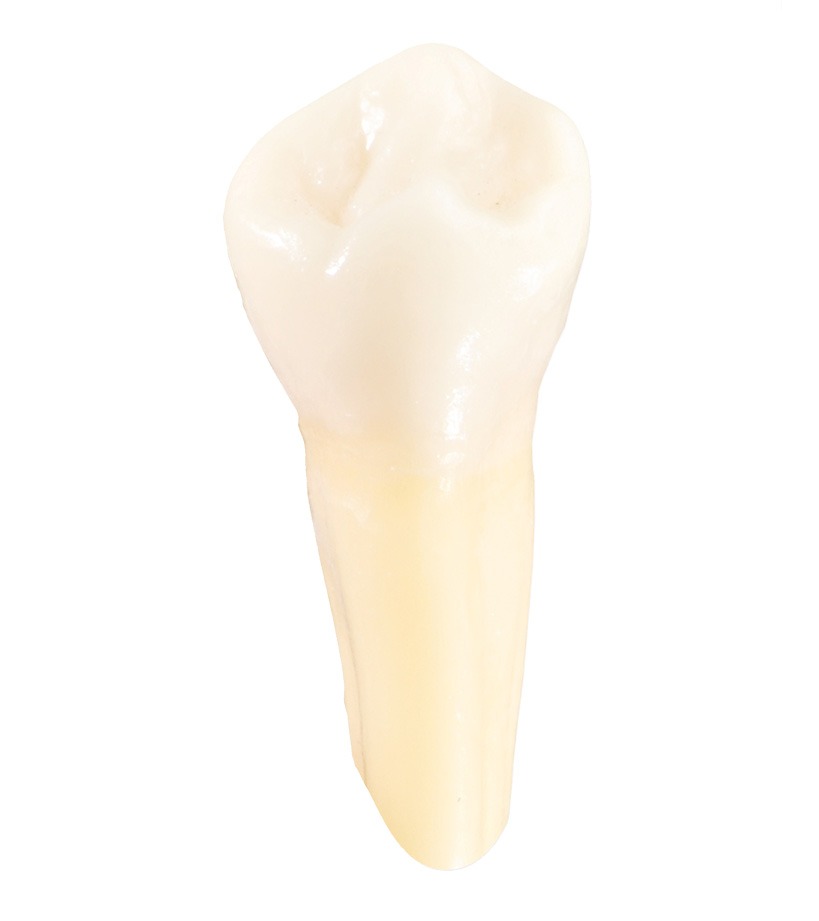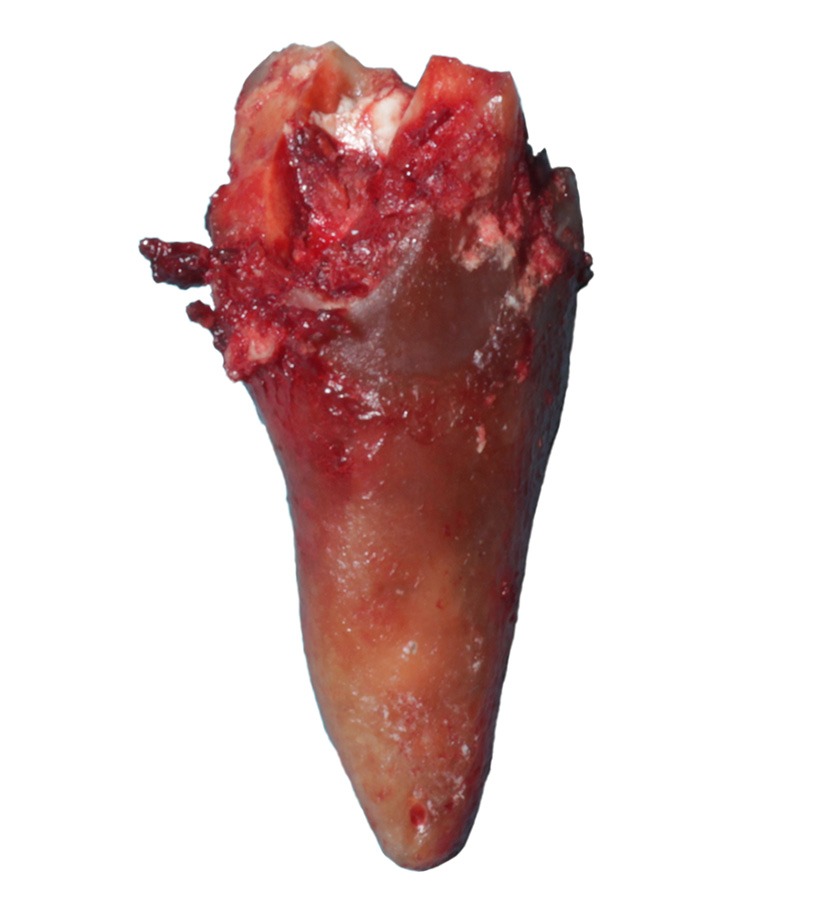Root Canal Challenges
Root treatment from a biological point of view
Two things biological dentists do not like to see are dead teeth and teeth that have undergone a root canal treatment, because they’re dead too!
This is not just a whim of biological dentists; in the medical world, it is universally accepted that no other medical discipline tolerates dead body parts being left in the body. This should include teeth, but it doesn’t.
In the medical world, dead body parts are removed as quickly as possible because of the inflammation they can cause and the toxic risks they pose to health. A root canal treatment can initially provide relief, and certainly contributes to the disinfection process in the short term, but sooner or later, a dead or root-canal-treated tooth (see photo below) will be repopulated with bacteria; and, as a result, will always lead to chronic problems in the body.

Healthy tooth

Root canal treated, dead tooth
As you can see, this is not a healthy body part. Root-canal-treated teeth are chronic inflammatory sites that can lead to chronic problems locally, but also in other areas of the body as well.
More than 100 years ago Weston Price coined the term “focal infection” for this purpose. Without a blood, nerve, and lymph supply the tooth is nothing but dead organic tissue with no immune function which make it the perfect breeding ground for pathogenic microorganisms.
Pathogenic bacteria exist in this widely ramified canal system of a root and form highly toxic sulfur compounds (thioethers, mercaptan), which can block vital enzymes at their active center. As nonliving organic tissue can begin to decompose over time, necrogenic material with increased toxicity (putrescine and cadaverine) can also develop. As a result, it’s important to remove all possibilities of infection because the immune system won’t be able to reach, nor recognize it.
A disturbed organ can pathologically affect the associated tooth, and conversely, a sick tooth can disturb its correlating organ. If you’ve had root canal treatment, don’t panic. There’s no rush to remove every root-treated tooth immediately. That said, we recommend that anyone who has undergone treatment be examined for signs of inflammation or cysts at the root tips. A healthy body can usually tolerate chronic inflammation for a while until another solution is found.
According to a study from my colleagues Dr. Lechner and Dr. von Baehr, the data shows that local pathologies caused by endodontically treated teeth may increase immunological and systemic dysfunction, which should at least raise an eyebrow in all folks who are interested in biohacking or optimizing their health!
For chronically ill people and high-performance athletes, we will remove the diseased tooth, thoroughly clean and disinfect the surrounding structures (with ozone and neural therapy), and as a bonus, replace the tooth with a ceramic implant immediately to ensure the gum and underlying bone doesn’t recede.
